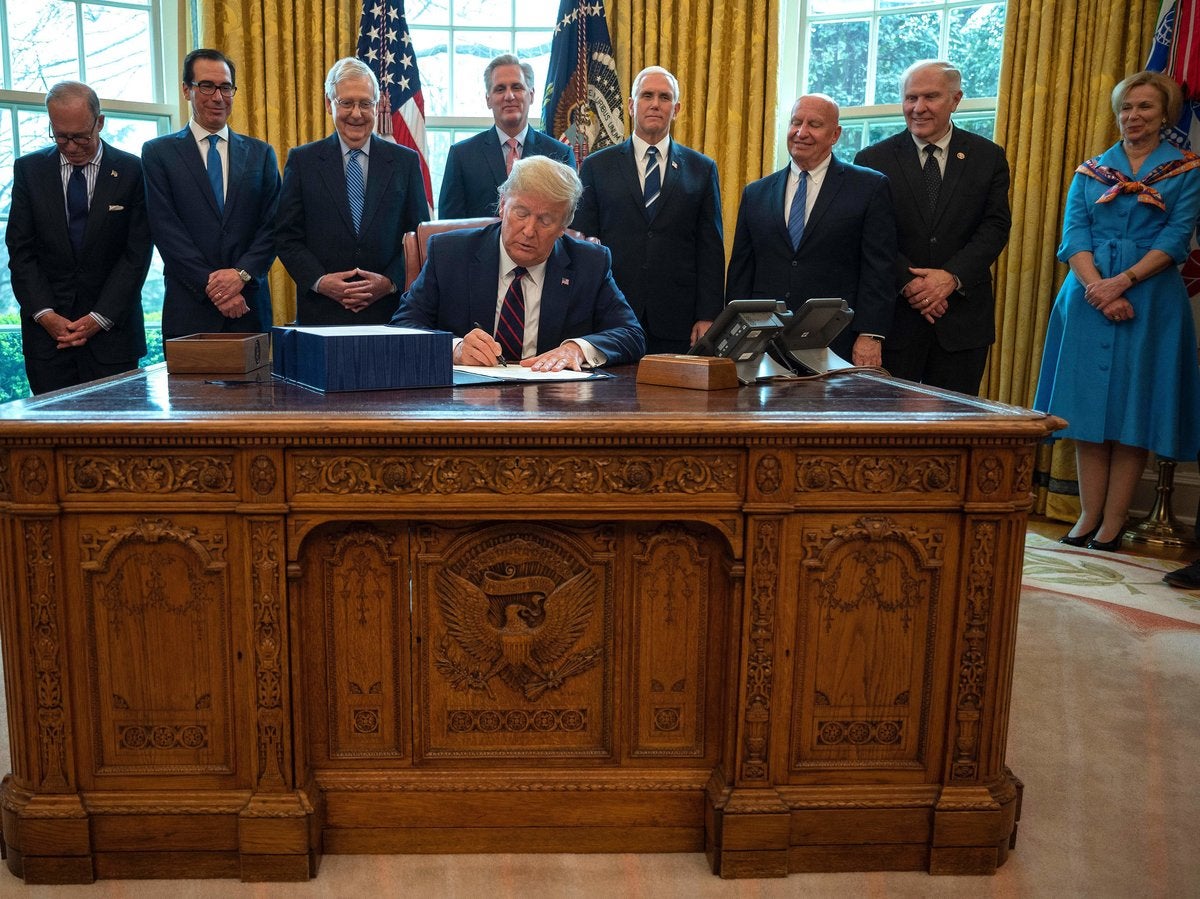
Several US banks have warned they will find it hard to take part in the government’s small-business rescue programme, arguing that the onus of hurriedly vetting loan applicants could expose them to legal liabilities.
The banks fear a “damned if you do and damned if you don’t” situation:

Access deeper industry intelligence
Experience unmatched clarity with a single platform that combines unique data, AI, and human expertise.
By performing their due diligence the way they normally would, they will get blamed for not allocating funds fast enough. But hastily qualifying loan seekers (as many expect and lawmakers demand) could expose them to potential legal costs or regulatory penalties.
The Treasury Department holds banks responsible for verifying the eligibility of potential borrowers, preventing fraud and money laundering, and for protecting customer information under the Banking Secrecy Act.
The loans for businesses will be available at participating lenders through June 30. However, the Trump Administration wants the loans disbursed within days.
The success of the programme will, naturally, depend on the cooperation of banks.

US Tariffs are shifting - will you react or anticipate?
Don’t let policy changes catch you off guard. Stay proactive with real-time data and expert analysis.
By GlobalDataAt a conference call yesterday, representatives of some big lenders expressed concerned that participating in the scheme in its current form could expose them to too much legal and financial risk.
The event was organised by the Bank Policy Institute (BPI), a Washington, DC-based financial services lobbying and advocacy organisation.
The BPI counts among its members the biggest US banks including JP Morgan, Bank of America, Citigroup, and Well Fargo.
Trump has signed a historic $2.2tn coronavirus relief package
Last week, President Trump signed into law a historic $2.2tn emergency coronavirus relief package. The package will offer relief to state and local governments, individuals, small and large businesses, and hospitals affected by the coronavirus crisis.
Specifically, the rescue package includes direct payments to Americans, an aggressive expansion of unemployment insurance and billions in business loans and aid to hospitals.
The bipartisan legislation, known as the CARES Act, is the third aid package from the US Congress this month to address the growing pandemic.
“We’re going to keep our small businesses strong and our big businesses strong,” Trump said of the legislation. “And that’s keeping our country strong and our jobs strong.”
Banks are seeking some protection against potential liability
Lenders would like to see a document that borrowers could sign to certify their eligibility, as a protection against potential charges of misconduct.
It appears that some banks are also seeking a written assurance from the government, offering some kind of protection from potential legal liabilities, as a condition for taking part in the scheme.
The loan programme is jointly administered by the U.S. Treasury Department and the Small Business Administration. Sources say the Treasury Department is now considering changes to the directive to lenders.
These reportedly include changes to the requirements for banks to verify that borrowers had the specified number of employees on their books; and that their other costs are legitimate







